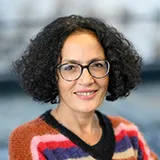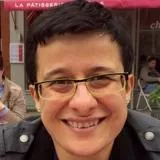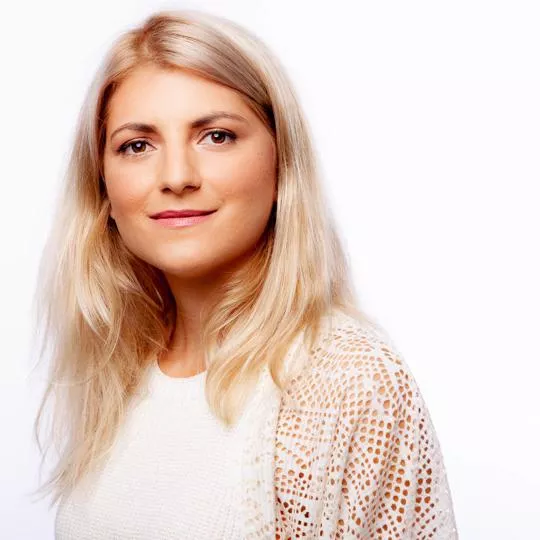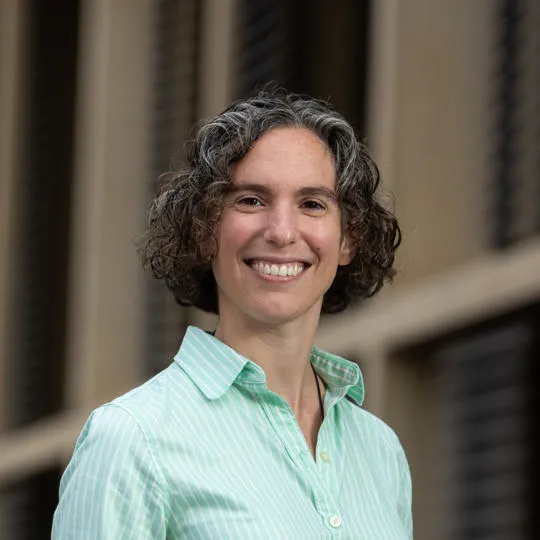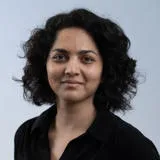Talk to people! Talk to students, postdocs, and professors. Talk to people outside academia who have degrees in mathematics. Ask them about their lives, their career choices, and any obstacles they faced. If possible, sign up for mini projects (or internships) to experience what research (or a specific non-academic job) feels like. "
Vaidehee Thatte, advice on becoming a mathematician
10 October 2022
King's Women in Maths
Meet our mathematicians
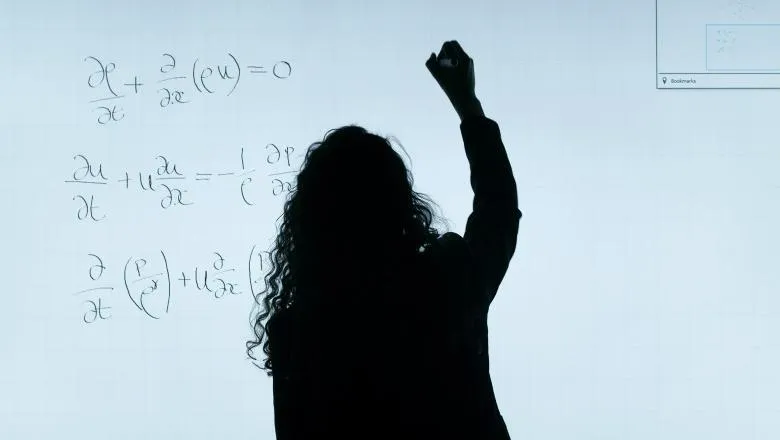
As part of Women in Science week we caught up with seven of the female mathematicians who work at King’s to find out what they are working on, why they enjoy maths, and to get their thoughts on ways of encouraging more women into maths.
You can read the full interviews by clicking on the names below. We spoke to:
Dr Teresa Bautista, Research Associate
Dr Maria Kalli, Lecturer
Dr Vasiliki Koutra, Research Associate
Professor Tiziana Di Matteo, Professor of Econophysics
Dr Kalliopi Mylona, Senior Lecturer
Dr Beth Romano, Lecturer
Dr Ragini Singhal, Research Associate
Dr Vaidehee Thatte, Research Associate
Dr Zoe Wyatt, Lecturer
Why Maths?
For Ragini Singhal the "universality" of maths is a large part of the appeal. Maths is based on a shared language. As Ragini explains it, “if I can correctly prove and explain something everyone has to agree with it.” Tizania Di Matteo comments that "data are everywhere and they carry information. To understand data is to understand our lives."
Mathematical models can be used in many areas of life, from economic forecasting to predicting the spread of disease, to assessing the impact of the energy crisis on individual households, to measuring the effect of sewage discharge on rivers and the sea.
Tiziana's research on complex systems, econophysics and data science can be used by practitioners and industry at large. In particular applications of her research to financial data-sets provide tools for risk management and portfolio optimisation, allowing the construction of modelling for financial systems that can be used for forecasting, stress testing and risk allocation.
Maria Kalli's work involves coming up with models for more accurate economic forecasting taking into account the complex dynamic behaviour over different time scales of factors including interest rates, employment rates, inflation, use of credit and changes in output.
Zoe Wyatt’s research is focused on models that predict changes in physical phenomena such as galaxy clusters and black holes. Teresa Bautista's research is also concerned with fundamental questions about the universe.
Kalliopi Mylona is a statistician, focusing both on developing new statistical methodology and its application in the real world. Currently she is designing optimal experiments for the food industry, agriculture and pharmaceutical science. As she explains: “Haphazard experimentation can be very wasteful of resources. Improvements in the way experiments are designed can generate important increases in knowledge and savings in time and money.”
Vasiliki Koutra is also a statistician. She is looking at new ways of designing experiments on networks: "For example, in a marketing experiment on a social network, we need to select which users should receive which advertisements in order to assess differences in click-through rates or revenue accounting for both the direct effects of the advertisement shown to a user and the indirect effects of the advertisements shown to that user's connections."
Getting started
Not everyone started out in mathematics. Beth Romano studied both maths and English and originally thought she would like to work in publishing. However she enjoyed tutoring other students in her university’s ‘Math Help Room’ and decided to study for a PhD. She now specialises in number theory and researches the local Langlands correspondence, an area of research that explores connections between certain areas of maths that appear on the surface to be unrelated. Tiziana is a physicist who in 2014 became the first Professor of Econophysics in the world.
Women in mathematics
We asked why women are still under-represented in maths. Ragini points out that there have been "years and years of social mindset that maths is not for women" and that she can often find herself at a conference where 90% of the speakers are male.
Zoe also comments on outdated social norms and says that there remains a lack of role models – when she was studying for her PhD at Edinburgh she was already the most senior female mathematician in her research groups. Teresa believes that social stereotypes put many girls and women off working in STEM subjects.
Vasiliki feels that expectations about who should be responsible for child care remains an issue, not just in mathematics. Beth adds that the need to be very flexible in moving around the country or internationally to secure positions can make it much more difficult to combine an academic career with caring responsibilities.
Women in Mathematics never give up. Things will improve with time. We are still not where we should be, but with time we will be !
Tiziana di Matteo
Beth comments that the most successful mathematicians she knows have other interests and hobbies outside their work. Our own group revealed a very wide ranges of interests that will be familiar to non-mathematicians - including baking, outdoor swimming, music, karate, chess, spending time with family, tennis, DIY, travel, reading, sketching and painting and getting stuck into box sets.

